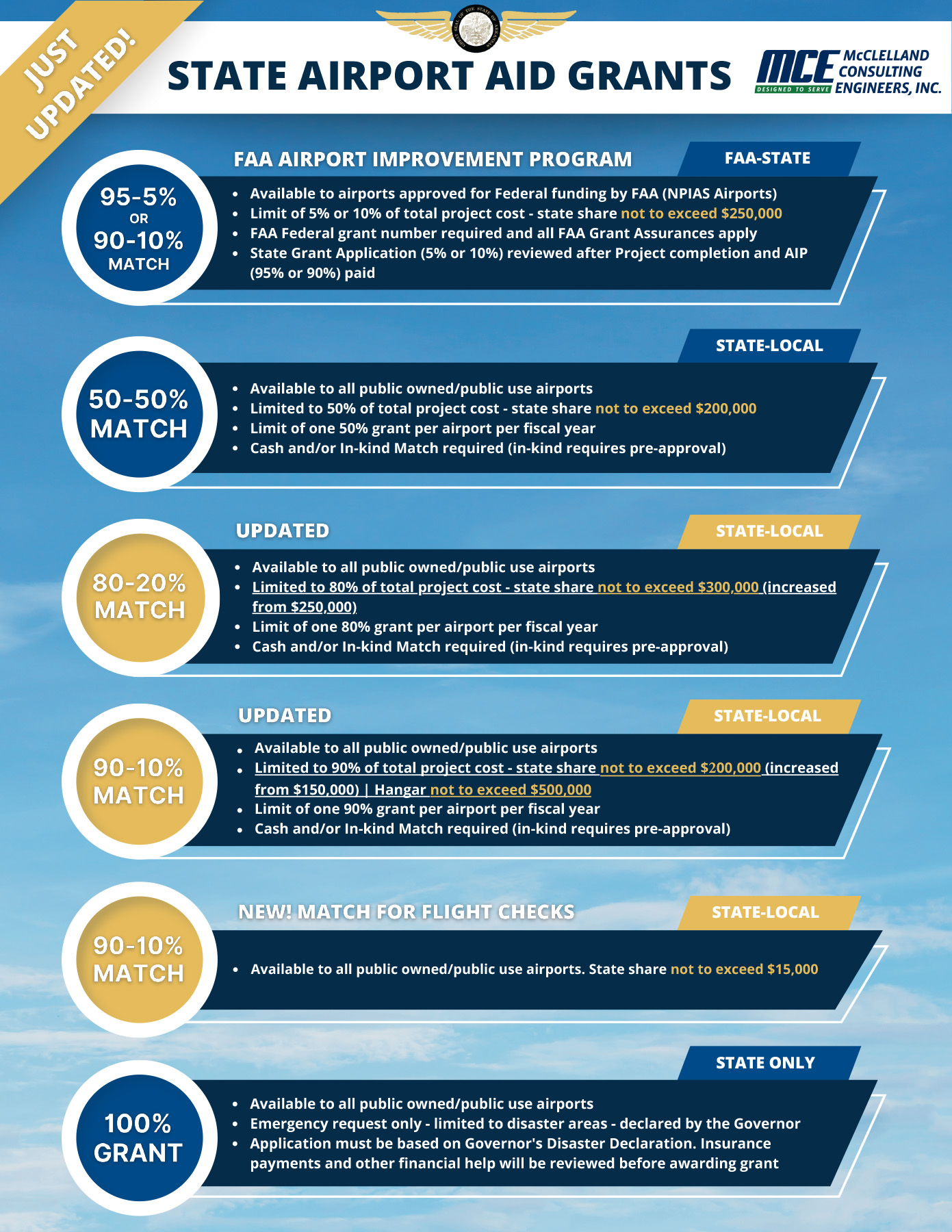Arkansas has a rich history of aviation contributions that are only possible with the support of the Arkansas Department of Commerce-Division of Aeronautics (ADA). Established with the mission of fostering and advancing aeronautics within the state, this division has played a pivotal role in shaping the aviation landscape in Arkansas. From supporting infrastructure development to promoting safety and education, the ADA has been a key player in propelling the state’s aviation sector to new heights.
Originally created by ACT 457 of 1941 and subsequently amended by Act 373 of 1965, the ADA transitioned into a division of the Arkansas Department of Commerce in July 2019. The ADA is guided by a seven-member commission and is led by Director Jerry Chism and his staff. The role of the ADA is to “promote aviation safety, encourage the establishment and planned expansion of airports to enhance economic development and administer the State Airport Aid Program.”
ADA’s funding comes from a special revenue sale tax on the sale of aircraft, aviation fuel/aviation related products, parts and repairs, or service. This means that no general revenue funds are used by the ADA and the division operates solely from the special revenue tax. The ADA’s revenues are reinvested into the maintenance, development and improvement of the state’s airports in the form of various grants.
The ADA offers a wide range of services related to aviation, with a key focus on funding aviation projects across the state. The ADA Commission meets 11 times a year to accept and approve grants from the state’s airports. Operating in a fiscal year that runs from July 1 to the end of June, this process ensures an effective allocation of the ADA’s resources. The grants can range from maintenance projects such as pavement rehabilitation to revenue-generating hangar-development projects. There are also grants to reimburse airports for their portion of a Federal Aviation Administration 90-10 matching grant.
In May of 2023 the ADA voted to change their grant program. With an excess in available funds, the grant program added $50,000 to the 80-20 State Airport Aid Grant (SAAG) and 90-10 SAAG. In addition, the ADA added $100,000 to their 90-10 SAAG for hangars. The ADA saw the need to increase the hangar grant limits to help with the rising costs of hangar construction. The demand for new hangars at airports is high with most general aviation (GA) airports having waitlists of around 20 tenants. This allows many of the GA airports across the state to meet the needs of the flying community by having a way to pay for new hangars. General aviation airports’ main sources of revenue typically come from fuel sales and hangar rental. By building more hangars the airports will create more revenue from rental fees. A byproduct of having more hangars to house aircraft is that those planes buy more fuel, which means additional airport revenue. A portion of these revenues is then returned to ADA in the form of the special revenue tax, which continues the grant funding process.
Arkansas’ airports range from small GA airports that provide local commerce and are usually a hub for nearby agricultural operations to larger airports that provide commercial services regionally and nationally. No matter the size, airports can have a measured impact on a community’s economic development. According to the most recent Statewide Airport System Plan Update from the ADA, Arkansas airports have an annual impact of over $3.5 billion to the state. That is not just from the larger airports; GA airports accounted for nearly $500 million of that economic impact. With these numbers expected to see steady growth, Arkansas airports, with assistance from the Arkansas Department of Commerce-Division of Aeronautics, will help our state and its aviation community soar to unprecedented heights.
Alex Smith, PE is a project manager and partner in MCE’s Aviation Department in our Little Rock office. Contact Alex by email at [email protected]. Mitch Rose is a partner and Aviation Department head, also in our Little Rock office. Contact Mitch by email at [email protected].










